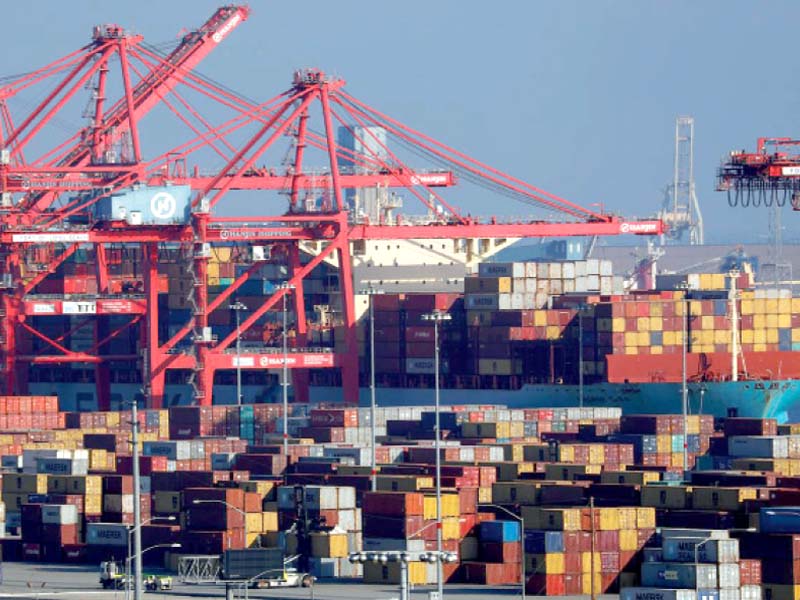
Adviser to Prime Minister on Commerce and Investment Abdul Razak Dawood on Saturday assured full support to exporters, particularly the information technology industry, saying the government would shield IT sector’s interests by not signing the international IT Agreement.
Speaking at the Lahore Chamber of Commerce and Industry (LCCI) during the inaugural ceremony for an export facilitation centre, the adviser emphasised that Pakistan needed to shift from low value-added products to high-end manufacturing. “Along with exports of goods, Pakistan needs to increase exports of services,” he said. Dawood pointed out that the government had abolished import duty on 41% of industrial raw materials, which comprised more than 1,600 tariff lines.
He said the Ministry of Commerce was working on a three-year plan to rationalise tariff, especially the duty on raw material. “The plan will be finalised in consultation with chambers and associations, and will encourage value addition,” he added.
“The Ministry of Commerce is also working on making the process of getting tax refunds easier for the exporters.” He pointed out that tariffs were now being set by the Ministry of Commerce, which were previously determined by the Federal Board of Revenue (FBR).
“Land acquisition for the Special Economic Zones (SEZs) becomes costly as soon as we announce the development of any site and to counter this issue we have suggested the introduction of a lease policy so that the land in SEZs is available on lease.”
Speaking on the occasion, LCCI President Irfan Iqbal Sheikh said, “LCCI believes in keeping sound working relationship with government departments, especially the Ministry of Commerce, for the betterment of economy and industry.
Sheikh said the retail sector had invested money and efforts in the development of infrastructure for integration with the FBR’s computerised system for real-time reporting.
However, the benefit of reduced sales tax (from 14% to 12%) is being extended to limited sectors (ie finished fabrics, textile and textile made-ups, leather and artificial leather-related products). “LCCI recommends that all sub-sectors of the retail sector should benefit from the reduced tax rate of 12%,” he added.
Sheikh suggested that no audit should be conducted for at least two years of such retailers who opted for integration with the FBR’s system.
The LCCI chief said Covid-19 had adversely impacted Pakistan’s economy, which was already facing stiff challenges including high debt levels, currency depreciation, high inflation, fiscal deficit and contracting gross domestic product (GDP).
“The industrial sector has also been facing negative growth for the past couple of years,” he said.
Sheikh stressed that exports held great importance for Pakistan’s economy as they were the main source of revenue generation, employment creation and maintaining balance of payments stability.
He said Pakistan’s exports were heavily concentrated in textile, leather and a few other products, adding that there was a need for diversifying exports by especially focusing on sectors like halal food, IT, engineering goods, surgical instruments, sport goods and pharmaceuticals. Highlighting the export potential of IT sector, Sheikh said Pakistan had over 5,000 IT companies, call centres and a sufficient number of IT professionals, while every year almost 20,000 IT graduates were being produced across the country.
“There is great potential for taking our IT exports well beyond the current level of $1 billion,” he emphasised. Sheikh was of the view that there was immense potential for enhancing Pakistan’s halal food exports as “we have abundant livestock”.
At present, Pakistan’s meat exports stand at $309 million while the global halal food market is worth well above $1 trillion and dominated by non-Muslim countries.
The LCCI chief underlined the need for collective action in a bid to explore new export markets as about 55% of Pakistan’s exports went to just 10 countries. “We have to take concrete steps to fetch better export revenues from the untapped markets of Africa, Russia, South America and Central Asia,” he stressed. Realising the importance of Africa as a potential market, the LCCI president said, “We have established an Africa desk at the LCCI for facilitating our members and addressing the issues hampering the increase in exports to Africa”.
Published in The Express Tribune, September 6th, 2020.
Like Business on Facebook, follow @TribuneBiz on Twitter to stay informed and join in the conversation.




1732184775-0/BeFunky-collage-(80)1732184775-0-165x106.webp)













COMMENTS
Comments are moderated and generally will be posted if they are on-topic and not abusive.
For more information, please see our Comments FAQ